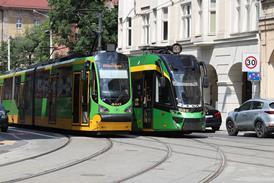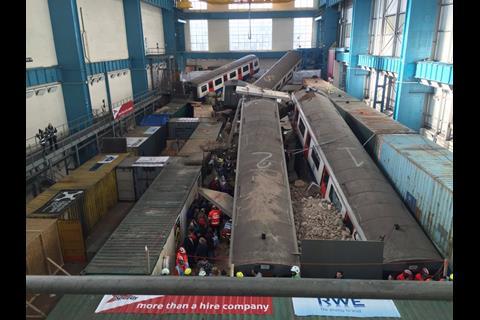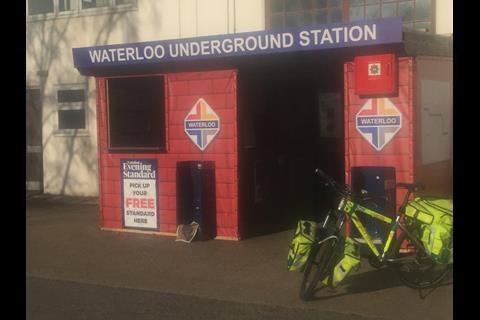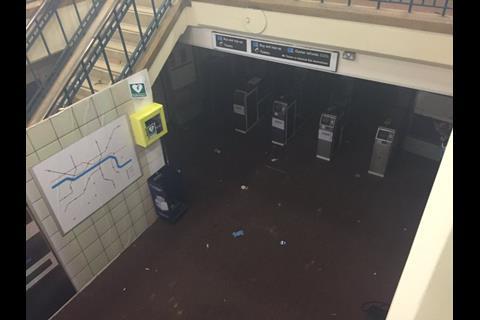UK: What the London Fire Brigade describes as ‘Europe’s biggest ever disaster training exercise’ began on February 29, with emergency response personnel from London being joined by firefighters from Italy, Hungary and Cyprus in a four-day simulation based on a scenario where a building collapses onto a London Underground station.
Chilling sounds of 'passengers' trapped at #UnifiedResponse exercise. Incredibly realistic https://t.co/ruQt7V1bJx pic.twitter.com/e4GnwYpfdj
— London Fire Brigade (@LondonFire) February 29, 2016
<script async src='//platform.twitter.com/widgets.js'; charset='utf-8'></script>
In order to create a realistic environment, an Underground station has been replicated and then 'crushed' in the disused Littlebrook power station near Dartford, southeast of London. The exercise includes seven redundant D78 metro cars, thousands of tonnes of rubble, more than 1 000 casualties and hundreds of people from a wide range of organisations including fire, police and ambulance services, local authorities, Transport for London and specialist urban search and rescue teams.
‘You can't get this sort of experience from a text book, we need to play it like it's real and ensure that should the worst happen, our response is effective and well co-ordinated’, said London Fire Commissioner Ron Dobson. ‘The modern fire service is no longer just about fires, we have a range of skills including carrying out complex rescues from height, detecting hazardous materials and rescuing people from water.
Passengers streaming out of fake #Waterloo station as #UnifiedResponse kicks off https://t.co/ruQt7V1bJx pic.twitter.com/Xd7bZTKmT4
— London Fire Brigade (@LondonFire) February 29, 2016
‘However, Exercise Unified Response is not just about the rescues; an incident of this size affects everyone from thousands of stranded commuters who can't get home, to distraught relatives who can't reach loved ones. We are working with TfL, local councils and various voluntary organisations to simulate the wider and longer term impacts that any major disaster would have on the community.’
Police and local authorities will set up a humanitarian assistance centre offering information and support, building on experience from the July 7 2005 terrorist attacks in London when hundreds of people who were not physically injured ‘found themselves struggling psychologically in the years that followed’, said Dobson.
Arrived at #UnifiedResponse. Acting as a patient with chest pain. Exciting stuff @AngliaRuskinFMS #EUR pic.twitter.com/lxJRwP0xHx
— Rose (@rosiealmond_x) February 29, 2016
<script async src="//platform.twitter.com/widgets.js" charset="utf-8"></script>
The exercise is being funded by the European Commission to practise the Civil Protection Mechanism which enables countries to request international assistance in preparation for or in the aftermath of a disaster. More than £1m has been donated in kind by supporting partners.
Suppliers
TfL, metro cars and other station props; McGee Demolition Group, rubble and machinery; RWE npower, venue; 4C Strategies, exercise management software; Speedy Hire, equipment, tools and plant hire; National Grid, commercial space; Airwave, radio channels; Clothes Aid, clothes for casualties to wear; Ruth Lee, casualty mannequins.
Products being used today at #UnifiedResponse pic.twitter.com/tgVYgCrdL7
— Chloe Rose MUA (@chloe_rose18) February 29, 2016




















